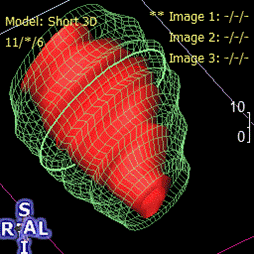
— Source: Dr. Peter Nathanielsz
The Research Imaging Core Laboratory (RICL) supports researchers in the development of in-vivo magnetic resonance imaging (MRI) and positron emission technology (PET) technologies, and applications of these technologies in immunology, infectious disease, cardiology, and neuroscience research. The RICL interfaces with the Comparative Medicine and Health Outcomes (CMHO) and Infectious Diseases Scientific Units of the SNPRC to provide state-of-the-art, translational imaging capabilities.
The PET/CT suite on the SNPRC campus performs non-invasive imaging on macaques and marmosets in ABSL2 and ABSL3 conditions, utilizing a Mediso MultiScan LFER 150. We currently are approved for 18F radioisotopes including 18F-FDG and 18F-DPA-714.
Our continued relationship with the Research Imaging Institute, UTHealth San Antonio, allows for MRI imaging of macaques, marmosets, and baboons utilizing 3T and 7T scanners. A Siemens Focus 220 Primate microPET scanner is available for imaging nonhuman primates, including larger species such as baboons. The radiochemistry laboratory and quality control laboratory enable production of a variety of position-emitting radiopharmaceuticals.
The RICL provides researchers guidance with respect to the appropriate imaging modality, image acquisition protocols, and analysis. Through the Research Imaging Institute at the UTHSA, we can work with researchers to develop radioisotopes.
Researchers interested in utilizing the RICL should first complete The form below
